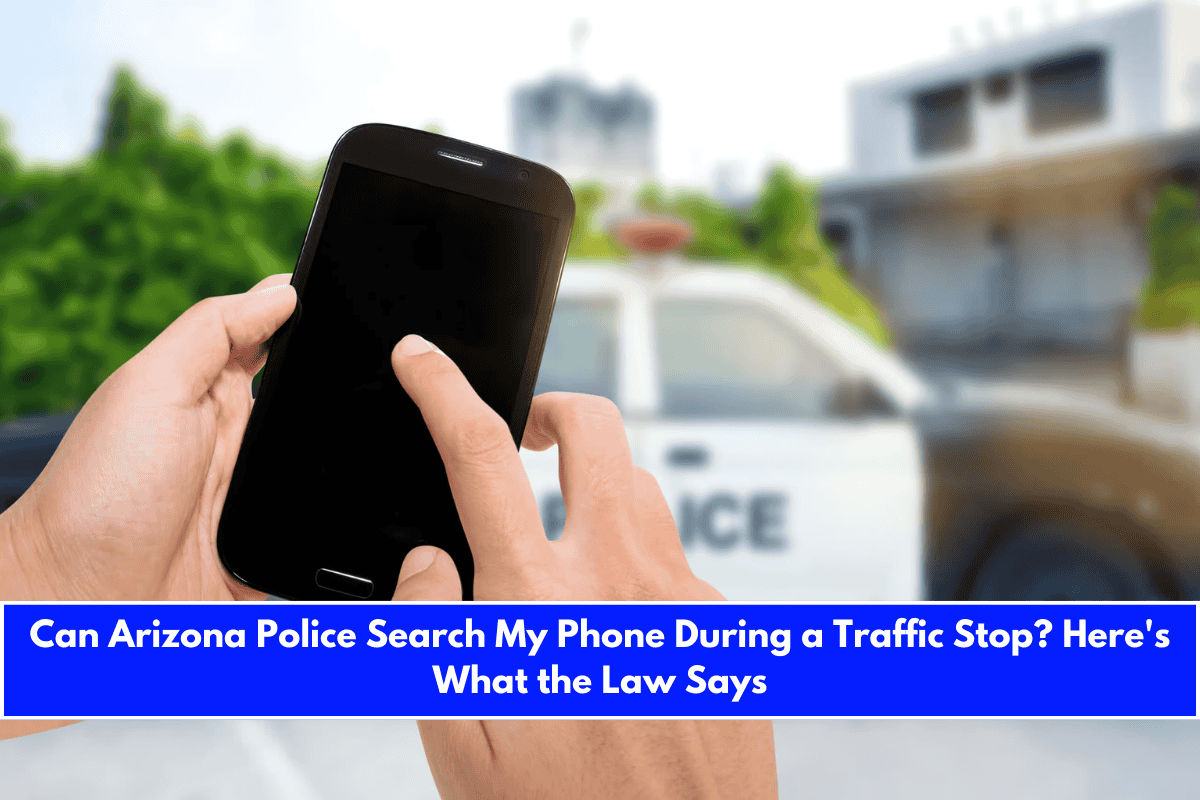Arizona police cannot search your phone during a traffic stop without your consent or a valid search warrant. This protection is grounded in the Fourth Amendment of the U.S. Constitution, which prohibits unreasonable searches and seizures, and is reinforced by court rulings recognizing the immense amount of private data stored on modern cell phones.
What Are Police Allowed to Do?
- Ask for Consent: Officers may ask you to unlock your phone or hand it over, but you are not required to comply. You have the right to politely refuse unless they present a warrant.
- Seize, Not Search: If police believe your phone contains evidence of a crime, they may seize it during an investigation or arrest, but they cannot search its contents until they obtain a warrant.
- Warrantless Search Exceptions: There are rare exceptions, such as:
- Voluntary Consent: If you explicitly agree, police can search your phone without a warrant.
- Exigent Circumstances: If there is an immediate threat to safety or risk of evidence destruction, police may search without a warrant, but this is narrowly defined and subject to later court review.
- Border Searches: Broader powers exist at international borders and airports, but these are not relevant to routine traffic stops.
What Should You Do If Asked?
- Politely Decline: Clearly state, “I do not consent to a search of my phone.” Do not unlock or hand over your device unless a valid warrant is shown.
- Ask to See the Warrant: If police claim to have a warrant, you have the right to review it before complying. A valid warrant must have your name, address, a judge’s signature, and specify the items to be searched.
- Remain Silent: You are not required to answer questions about your phone or its contents. The Fifth Amendment protects your right to remain silent and avoid self-incrimination.
What If Police Search Your Phone Without Consent or a Warrant?
- Unlawful Search: Any evidence obtained from an illegal search may be challenged and potentially excluded from court proceedings.
- Seek Legal Help: If you believe your rights were violated, contact a criminal defense attorney experienced in Arizona law.
Summary Table: Arizona Police and Phone Searches at Traffic Stops
| Situation | Can Police Search Your Phone? | Notes |
|---|---|---|
| Routine traffic stop | No | Warrant or consent required |
| You give explicit consent | Yes | Consent must be voluntary and unequivocal |
| Probable cause, no warrant | No (but may seize phone) | Can hold phone while seeking a warrant |
| Exigent circumstances | Rarely, only if urgent threat | Must justify in court |
| Search incident to arrest | No (can seize, not search) | Warrant still required for search |
Key Takeaways
- Arizona police need your consent or a warrant to search your phone during a traffic stop.
- You have the right to refuse any request to unlock or hand over your phone.
- If seized, police must obtain a warrant before accessing your data, except in rare emergencies.
- Protect your rights by staying calm, declining consent, and asking for legal representation if needed.
If you have concerns about your rights during a police encounter, consult an attorney familiar with Arizona criminal law.
Sources:
- https://www.arizonalawgroup.com/blog/can-a-police-officer-search-your-phone-without-permission/
- https://www.youtube.com/watch?v=KHCLkHav4f8
- https://coolidgelawfirmaz.com/can-the-police-search-through-my-phone/
- https://www.crimeandinjurylaw.com/blog/2025/04/understanding-your-rights-during-police-search-in-arizona/
- https://arjashahlaw.com/blog/can-police-search-your-cell-phone-without-warrant-arizona/











Leave a Reply